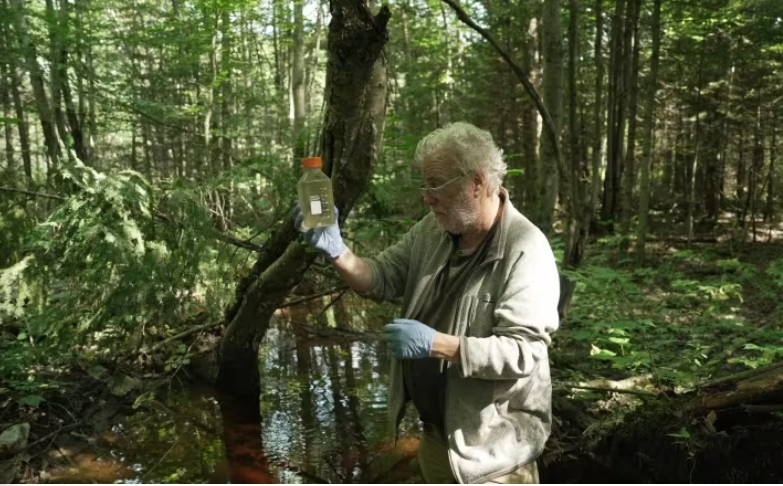Where sand dunes disappear on Sable Island, so does the underground freshwater supply, according to new research underscoring the importance of dunes to the island's ecosystem. The dunes serve as a natural barrier, protecting against the relentless waves and temporary salinization of groundwater caused by ocean flooding. Dunes also help refresh the water table by funnelling water from rain and snow into aquifers that, in some places, are 40 metres deep.
Residents in Trois-Rivières, Que., have a recycling plant for a neighbour. They say it's far from green
Frustrated neighbours in Trois-Rivières, Que., are sparing no effort to make their case that the province should think twice before doing business with a glass recycling company near their homes — collecting water samples and even using drones to prove that the operation is far from environmentally friendly. Gilbert Cabana and his neighbours have a wide array of skill sets.
Concerns mount in southeast Manitoba over proposed silica sand mining project near Vivian
A mining project that would potentially pump upwards of $1-billion into the provincial economy over nearly a quarter century has plenty of opposition. Residents, business owners and politicians from in and around the Rural Municipality of Springfield packed the Anola Community Centre on Saturday for a public consultation, many raising concerns about Calgary-based Sio Silica's proposed sand silica mine.
Canada has a responsibility to safely manage nuclear waste for generations — here’s the plan
Canada’s own deep geological repository would be built more than 500 metres underground, surrounded by a natural barrier of solid rock that has been disconnected from the water table for millions of years. To visualize that depth, imagine an excavation more than five times as deep as the House of Commons Peace Tower is tall. The NWMO has been working to identify a site for the deep geological repository since 2010. Twenty-two municipalities and Indigenous communities expressed interest in exploring their potential to host it.
'Blazing a trail': Indigenous-led organization to operate water utility in Mi'kmaw communities this spring
An organization that will take over the responsibility of water supplies in First Nations communities in Mi’kma’ki from the federal government is optimistic the spring budget will bring good news for the chronically underfunded utility. The Atlantic First Nation Water Authority signed a framework agreement with Indigenous Services Canada in 2020 to transition the control and oversight of drinking water and wastewater services in 15 Mi'kmaw and Wolastoqey communities to the First Nations-led organization.
Neighbours fear possible water contamination after Eastway Tank explosion
A previous statement from the environment ministry stated the frozen ground and efforts by crews "greatly reduced the likelihood of contamination reaching the water table and entering local drinking water wells." However, residents are again raising their concerns after former employees came forward to allege the company dumped wastewater containing fuel into a ditch that runs alongside rail tracks behind the property.
Province's plans to change gravel pit rules could harm local water, natural areas: report
Regional staff are urging the province to reconsider proposed policy changes that could loosen rules around gravel mining and other aggregate extraction. Aggregate is the technical term for raw materials like sand, gravel and stone. The proposed changes are outlined in a draft update to the Provincial Policy Statement, a document that provides direction on land use planning across the province.
Bottled water sent to drought-stricken region of Nova Scotia
The Nova Scotia government is buying bottled water and dispatching tanker trucks to a southwestern stretch of the province grappling with an extended drought. The Emergency Management Office said it has been working in Argyle, Barrington and Yarmouth to make sure people whose wells have run dry have access to drinking water.









